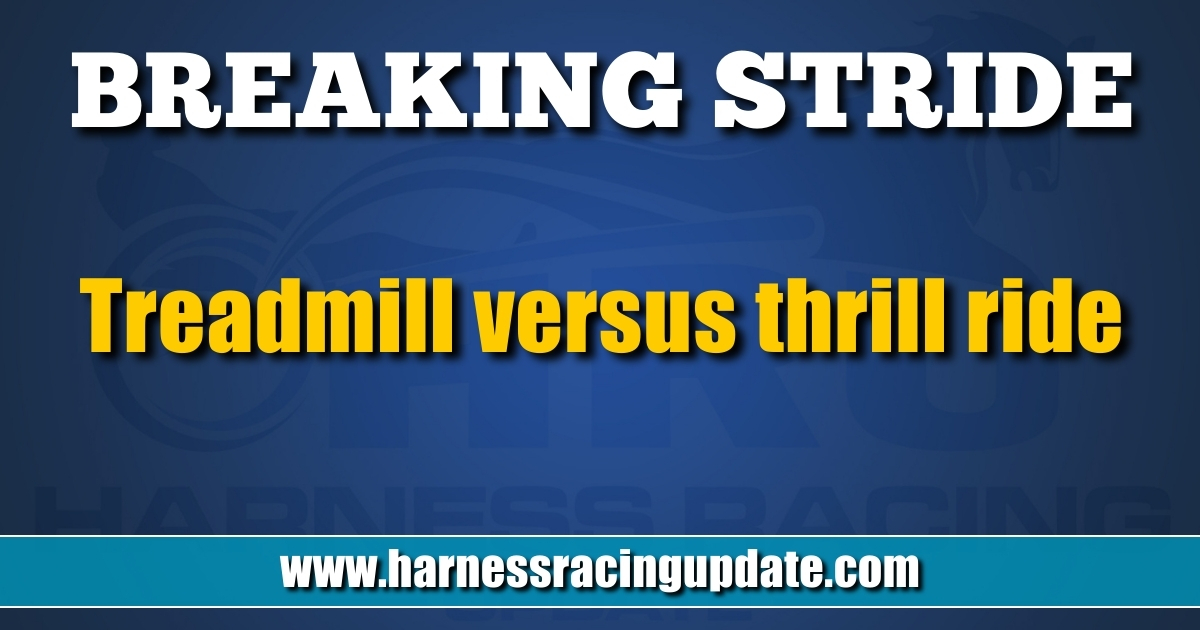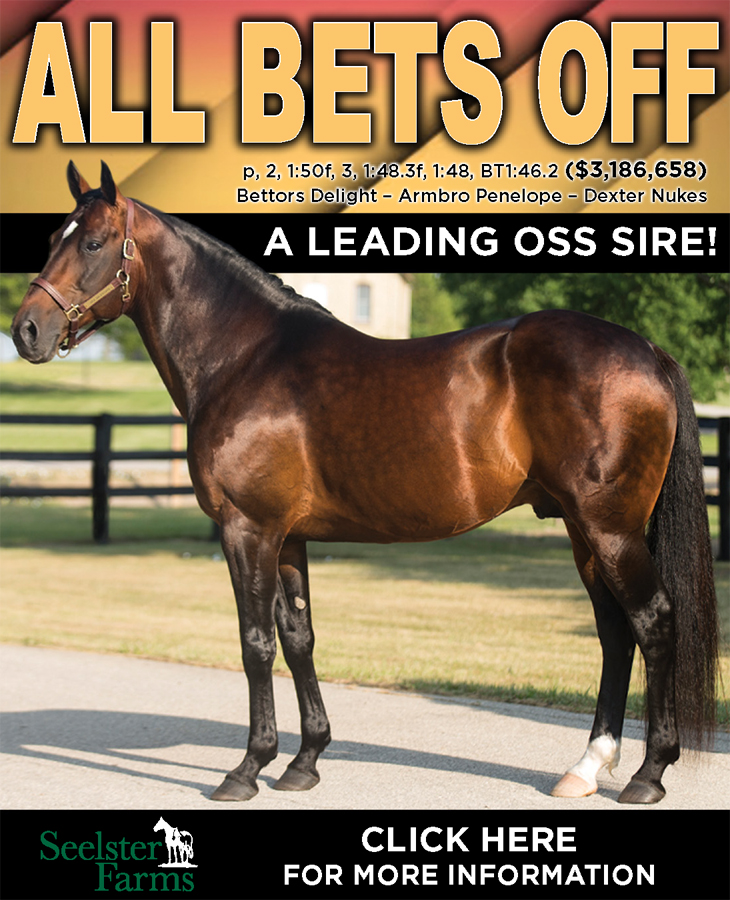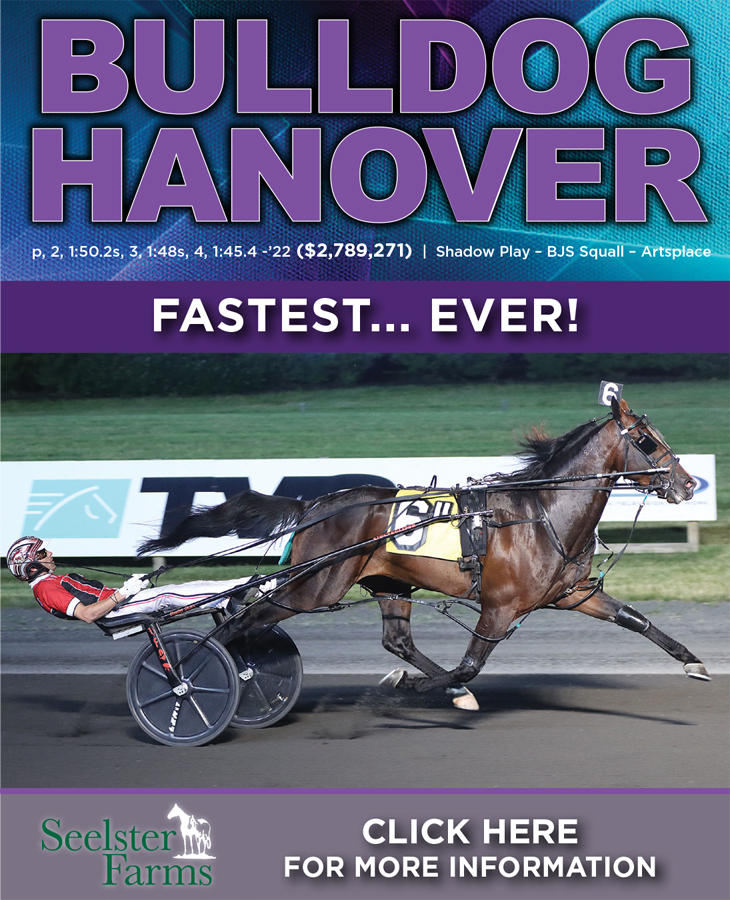

Treadmill versus thrill ride
by Trey Nosrac
This is a true story.
Once upon a time, a pair of fellows bought a yearling trotting colt. The trotter in question almost raced as a 2-year-old but was injured just before qualifying. The trotter in question made it to the races at age 3 and made some purse money. Since the fellows prefer not to race overnight horses, they sold the trotter at the end of the 3-year-old racing campaign. The bottom line for the entire experience was a net loss of around $10,000.
The fellows have kept up with the horse’s progress for several years. This war horse shows up weekly, has had several owners, raced in several states, has been claimed, sold, lost an eye, broke his foot, and had many adventures. This colt has over 130 starts under his harness. The earnings are difficult to calculate, but with average monthly training bills, this horse has turned a slight profit for the past six years.
A philosophical question for you.
As an owner, would you rather be the fellows who owned him for his first 25 starts or the owners and trainers for the 100 starts after he turned 4?
There is no correct answer.
As 20th-century English poet Edith Sitwell wrote, “There are no truths, only points of view.”
I would argue that the fellows who raced this horse over his first two seasons were the winners.
“Winners?” you ask, “The math proves differently.”
Training and racing harness horses is an expensive proposition. Even fractional ownership can be costly. Young horses, staking racing, and starting fees are extra pricey. Owners who play the young horse game are less likely to make purse money. As a trainer once told me, “Racing overnight, you go broke slower than racing babies.”
So why do some of us prefer racing in a riskier game?
For my money, purchasing a yearling and racing at ages 2 and 3 is a thrill. The trip to the track to watch your young horse race provides high highs and low lows. There is drama. The definition of drama is an exciting, emotional, or unexpected series of events or set of circumstances. Very young horses are less predictable. Unpredictability creates drama.
Since we sold the trotter I am referencing, his races are a routine grind. He churns out mile after mile with a variation of 2 seconds. You may point out that this iron warhorse has many mini-dramas, and you will get no pushback. Everything is relative. However, if you compare my heart rate during the first start of this horse to the heart rate of the current owner today, I suspect I would win the fast heart rate race by a mile.
As I type this column, the winter weather is dreadful. Because of a recent claim, our formerly owned warhorse is in the box for a new owner and trainer. He will bravely go behind the starting car and trot another predictable mile. His results will depend on his classification and racing luck.
Allow a few more questions about tonight’s program with this warrior.
Is his next claiming race what you want our harness racing product to be?
Does his race have enough drama in these times of big drama?
Is racing races with extremely predictable performances good for wagering purposes?
Do you think a winter off-season would be beneficial to our sport?
Do you believe phasing out warhorses in favor of young horses is a long-term benefit to our sport?
Are we on a treadmill?
My answers are: no, no, no, yes, yes, yes. But then again, “There are no truths, only points of view.”














